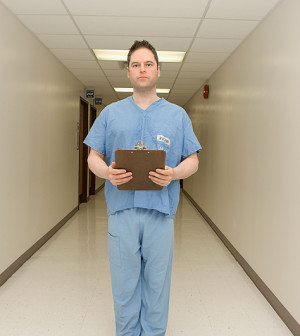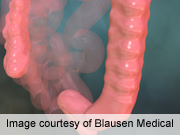- Could Your Grocery Store Meat Be Causing Recurring UTIs?
- Are You Making This Expensive Thermostat Error This Winter?
- Recognizing the Signs of Hypothyroidism
- 10 Strategies to Overcome Insomnia
- Could Artificial Sweeteners Be Aging the Brain Faster?
- Techniques for Soothing Your Nervous System
- Does the Water in Your House Smell Funny? Here’s Why
- Can a Daily Dose of Apple Cider Vinegar Actually Aid Weight Loss?
- 6 Health Beverages That Can Actually Spike Your Blood Sugar
- Treatment Options for Social Anxiety Disorder
Half a Million Cancers Prevented by Colon Screenings: Study


More than 500,000 cases of colon and rectal cancer may have been prevented with cancer screening tests during the last three decades in the United States, experts estimate.
“These numbers represent real patients and families who have been spared the trauma of a cancer diagnosis and treatment,” the study’s senior author, Dr. James Yu, assistant professor of therapeutic radiology at Yale School of Medicine, said in a university news release. “Colorectal cancer screening is one of the major successes in cancer care.”
The screenings, which took place between 1976 and 2009, included three kinds of tests: colonoscopy; a similar test called a sigmoidoscopy; and fecal occult blood tests, in which fecal samples are tested by a laboratory for signs of blood in the stool. As an increasing number of men and women underwent these procedures, colon and rectal cancer rates dropped dramatically, the study revealed.
The study, published in the June 3 online edition of Cancer, used data from the U.S. National Cancer Institute’s Cancer Trends Progress Report and its Surveillance, Epidemiology, and End Results database.
The incidence of late-stage cancer fell from 118 cases per 100,000 people older than 50 years of age to 74 cases per 100,000, the researchers found.
Meanwhile, the incidence of early stage cancers dropped from 77 to 67 cases per 100,000 in people older than 50 years, according to the report. At the same time, colon cancer screening rates jumped from nearly 35 percent to 66 percent.
“The [effectiveness] of colorectal cancer screening is important to highlight, especially at a time when there has been a national discussion about screening for other types of cancer,” study co-author Dr. Cary Gross, director of Yale’s Cancer Outcomes, Public Policy, and Effectiveness Research Center, said in the news release.
More information
The U.S. National Cancer Institute provides more information on colon cancer screening.
Source: HealthDay
Copyright © 2026 HealthDay. All rights reserved.










